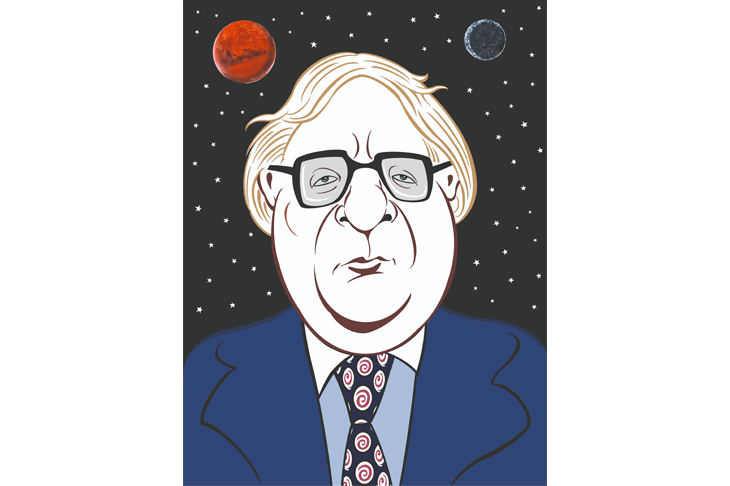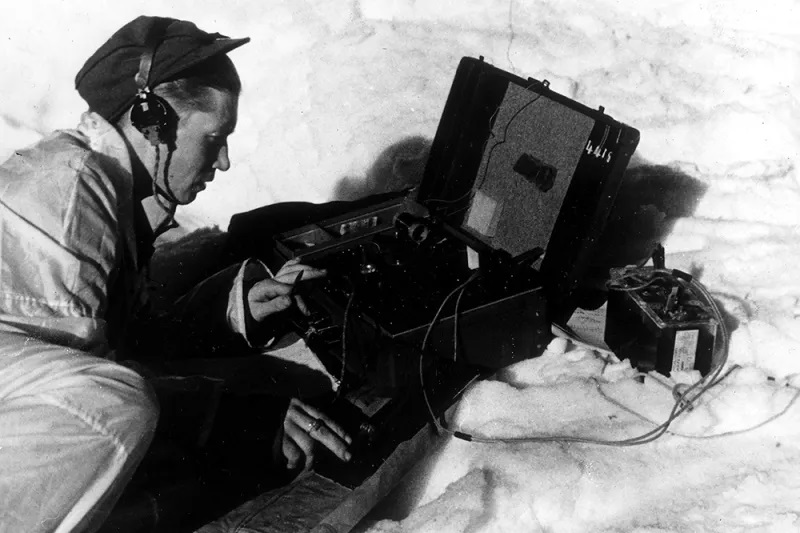I was 14 or 15 when I first read Ray Bradbury, which is not a bad age to enjoy the man fully. It was the short story ‘Boys! Raise Giant Mushrooms in Your Cellar’, in which a lad called Tom does just that and it doesn’t end terribly well. Superficially, it is a silly story, but what hooked me from the outset was the vague yet pervasive sense of unease running throughout this minor small-town saga, disturbing the comfortable ennui of family life. Nothing spelled out — just a deepening disquiet, the common thread in all of Bradbury’s finest little vignettes. Back then, in the 1950s, the Cold War and the possibility of nuclear annihilation were hovering in the background, just beyond the edge of our eyesight, which perhaps explains the author’s state of mind. Whatever, it appealed to me. As a teenager I yearned for there to be something more — something darker — to my own suburban existence.
I started reading Bradbury at about the same time I discovered his closest British counterpart, John Wyndham. The similarities between them tend to disguise the fact that in truth they are poles apart. Both second-generation sci-fi writers who drew from H.G. Wells and Jules Verne. Both committed to humanizing this newish genre by ensuring that the science came second to the fiction and the development of characters. (Indeed, Bradbury was not a fan of the term science fiction, preferring ‘fantasy’.) Both made frequent recourse to children, either as a kind of tabula rasa in the case of Bradbury, or a source of menace with Wyndham. But Wyndham was an authoritarian, albeit a gentle one: catastrophes occurred and a middle-class Englishman with a strong chin was always on hand to restore order, to put things back in their proper places.
Bradbury had none of that. He reveled in order being perpetually disrupted, and those disposed to restoring order tended, in his stories, to be the bad guys. He was an antiestablishment libertarian. Stuff did not get solved with Bradbury. It was left hanging, shrouded in mystery. With Wyndham everything was certain and sure to be put right. In a sense, then, they reflect the post-war mindsets of our two countries — but whatever the case, I much preferred Bradbury. He had a child’s knack of recognizing the spooky, the strange and the ectoplasmic in the most commonplace of things, such as a mushroom.
I can think of no writer who has drawn on his childhood experiences so frequently and to such an agreeable effect — in Bradbury’s case a childhood sited in the smallish Midwestern town of Waukegan, in northern Illinois halfway between Chicago and Milwaukee, rechristened Green Town in his stories. He was only six when his family first left Waukegan — first for Arizona, later for the West Coast, returning to Illinois briefly each time, a return which you suspect the young Bradbury always yearned for. In Green Town there is always bacon in the skillet, dad is away at work (as was Bradbury’s) and Mrs Singer is singing Yiddish songs in her store, which serves vanilla ice cream topped with chocolate. Write about what you know, even if it’s science fiction.
Bradbury is most famous for Fahrenheit 451, a piece of dystopic fiction in which the job of firemen is to burn books at the behest of a totalitarian government. I am less of a fan. Much like Nineteen Eighty-Four, to which it owes a small debt, there is not much in the way of nuance with Fahrenheit 451: there is right and wrong and that’s that, which is very un-Bradburyish. Orwell himself thought Nineteen Eighty-Four crudely drawn; so it is with Fahrenheit 451. At the time (1953) it was championed by the left as a biting critique of McCarthyism, which seems to me a bit of a stretch. More recently it has been disinterred by the right as a baleful warning about political correctness and cancel culture. I think the older Bradbury would concur with this latter assessment: by the end of his life he was, as Thurber puts it, further to the right than a fish knife. He voted for Nixon in 1968 and Republican thereafter — save for 1976, when he voted for Carter, a decision he later greatly regretted. He pronounced Ronald Reagan the USA’s finest president, adored George W. Bush, referred to Bill Clinton as a ‘shithead’ and couldn’t abide Barack Obama. He flung missiles at ‘black groups’ and ‘homosexuals’.
Frankly, it’s a wonder we are allowed to read him at all. But that’s where Fahrenheit 451 got it right. After reading Bradbury I moved on to Henry Miller, Saul Bellow, Philip Roth and John Updike — especially Updike, another small-town writer. These people seemed to me giants of literature and yet I suspect you will have to search high and low to find them on a university syllabus, so comprehensively have their reputations been trashed for political reasons.
Updike, an almost lifelong registered Democrat, is loathed for his supposed misogyny and racism. I read an academic article recently supposedly in support of Updike: it said he should be read because we needed to know what a vile bastard he really was. Saul Bellow is canceled because he became a bit gamy about the neighborhood gangs in Chicago, and also for Henderson the Rain King and Mr Sammler’s Planet, which are considered terribly racist. And Philip Roth? Hell, even his biographer has been canceled. Maybe we ought to memorize a book or two from each of these wonderful writers, in order to keep the memories alive. I’ll take Updike’s Couples, if that’s OK — I already know most of it by heart. It’s late now. There’s a wind whipping up and the distant sound of thunder carrying the whiff of autumn. I am no longer 15 years old. But I might still hunker down between my sheets with Bradbury, comforted by the tales of the weird and ominous stuff going on just outside.
This article was originally published in The Spectator’s August 2021 World edition.

























